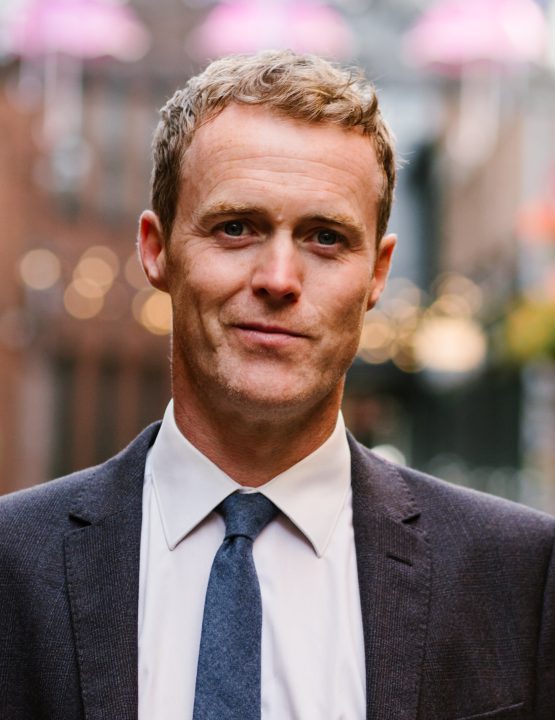Throughout the sectarian Troubles that tore Northern Ireland apart from the late 1960s until the Good Friday Agreement of 1998, members of the co-operative movement in Northern Ireland worked hard to heal divisions.
It was way back in 1960 that civil rights champion John Hume founded the first credit union in the UK, in the city of Derry. These tended to be run separately by Protestant and Catholic communities and things are only now gradually starting to change after decades of cross-community working.
Anna McAleavy, former regional secretary of the Co-op Group in Northern Ireland, and also a member of the Northern Ireland Co-operative Forum from the 1990s onwards, recalls the successes and the setbacks.
“The Open Learning Centre was funded by the government, with the remit of getting people back into economic activity and an emphasis on women returners,” she says. “I managed one in North Belfast. That got me thinking about community and helping people to become more self-sustaining.
“The NI Co-operative Forum had people from all sectors and encouraged the sharing of information across communities. We also set up a Co-operative and Mutuals All-Party Group in the Northern Ireland Assembly to discuss ways of inclusion and raise the profile of the co-op movement.”
One of its roles was to lobby and increase understanding of how to include different sectors of the community to work together on issues like education and housing and liaising with the credit unions.
“Our remit was collaboration and understanding,” says McAleavy, “but doing that against the background of an unsettled society was difficult because things were stacked against us. It was very difficult to get people to agree.”
McAleavy also chaired another venture – the Social Economy Network – but the corridors of power have in recent years been closed to such projects. Under the peace deal that ended the Troubles, the main parties must share power for the national Assembly to function, but since 2017 this has not been possible thanks to disputes between the parties – first over a scandal surrounding a renewable heat incentive, and then over post-Brexit border arrangements. This has left civil servants in charge of big decisions; but McAleavy remains optimistic about
the future. “These things could all be re-established if we had a proper government but you need stability. It’s not that the movement has failed, the ground is right for it because we work here in a very co-operative way.”
McAleavy’s optimism may be rewarded yet: since this article was compiled, news broke of a power-sharing deal, ending the deadlock over checks and paperwork on goods moving from Great Britain to Northern Ireland, which had prompted a two-year boycott by the Democratic Unionist Party (DUP). It is hoped this could restore the devolved government in a matter of days.
Related: Independent co-op grocery opens doors in Lisburn, NI
There are other hopeful signs. After a re-structuring of the Co-op Group about 20 years ago, the larger agricultural co-ops disbanded, co-op businesses were sold off and there are now just 30 retail co-op stores left in Northern Ireland. But the good news is there are currently 214 independent co-operatives; 145 of these are credit unions, while the remaining 69 comprise well-established and emerging co-operatives, from artisan shops and longstanding businesses like the Belfast Community Co-op to sporting academies and renewable energy.

In recent years, a grassroots organisation called Co-operative Alternatives has made great strides in encouraging community groups to come together. Tiziana O’Hara, a former member of the original Co-op Forum and founder member of Co-op Alternatives, heads up a team offering a wide range of advice on legal, financial, business and democratic governance as well as training and business support to all groups who want to do business in a co-operative way.
“The future looks a lot brighter,” she says. “We are very much interested in helping groups to think about the co-op model, promoting co-operatives and helping them economically. We understand co-op values and our business plans aim to really engage the wider membership with our seven principles.”
She acknowledges that cross-community work is still ‘quite challenging’ although many of the smaller co-ops cover mixed communities.
“However, even when working with single identity groups you can still provoke change. They usually branch out and reach out when they need new members.”
A case in point, O’Hara says, is the Ballymacash Sports Academy, sited in the Unionist stronghold of Lisburn.
“This started out catering for a single community, but the membership also now goes outside the area. The sports facilities are used by women and older people and those from outside the community. The fact there was that transformation is fantastic.”
She adds: “Most of our co-ops have expanded and as they do they become more interested in inclusion rather than exclusion. There are two breweries who had that single identity originally. Carrickfergus community shop was Unionist but when they did their share offer you could see the transformation, with these initiatives bringing people together.
“When you create the conditions to work together, do people work together? Yes! My only concern is the political paralysis we have which has kept us back, but it didn’t stop us because we have created other types of partnerships so we can tap into funding.
“We are building more and more partnerships and linkages among newly emerging co-ops. We are also part of a big partnership for community energy so we can create better links to make communities more resilient. We spend less and less time talking to government and a lot more working on the ground to build bridges.”
The Northern Ireland Federation of Housing Associations (NIFHA) has 20 registered housing associations, founded on a mutual model just as Industrial and Provident Societies.
Latest official figures from the Department for Communities show the number of people waiting for a home is at a record 45,105. In 2022/23 1,449 new homes were completed and 1,956 were still being built, surpassing the targets set by the government.

NIFHA chief executive Seamus Leheny is clear that there is much greater emphasis these days on mixed tenures for new housing projects “Housing is a great way to build bridges. We have 20 member associations and just over 59,000 units with lots of mergers over the years. Some were predominantly one community or another but over the past 10 to 15 years we have seen that’s not really the case any more.”
Again, a return to the power-sharing agreement offers potential for more action.
“Without an executive to ring-fence money and overall budget cuts there’s a record waiting list and many of those people will never get social housing because it works on a points system,” says Leheny. “To try and make a dent we would need to be building 2,200 this year alone but we have managed to build 1,400, exceeding targets given to us so even in tough times we have been able to over-deliver.”
One positive legacy of the NI Assembly is TBUC – Together: Building a United Community – a strategy launched by the Northern Ireland Executive in 2013 to promote good relations and social change. “We want to see as many shared spaces as possible in our towns and city centres, particularly in and around the city of Belfast,” says Leheny. “We are trying to make spaces where people can feel safe and there is additional funding for that.
“We work with local community groups and youth groups so it’s new generations. If you are tackling long-held historical problems unique to NI then housing is a good way to do that.”
Belfast City Council has also launched a Local Development Plan in which any new developments are mixed tenure, putting people of different religious and socio-economic backgrounds together.
“We can still access funding through TBUC for shared housing and we have been able to access EU money as part of the reconciliation process,” says Leheny. “Politically you can never rest on your laurels. Every day the mood music changes but one thing that unites us all is the fact we need our Assembly and ministers back and we need some big decisions to be made.”